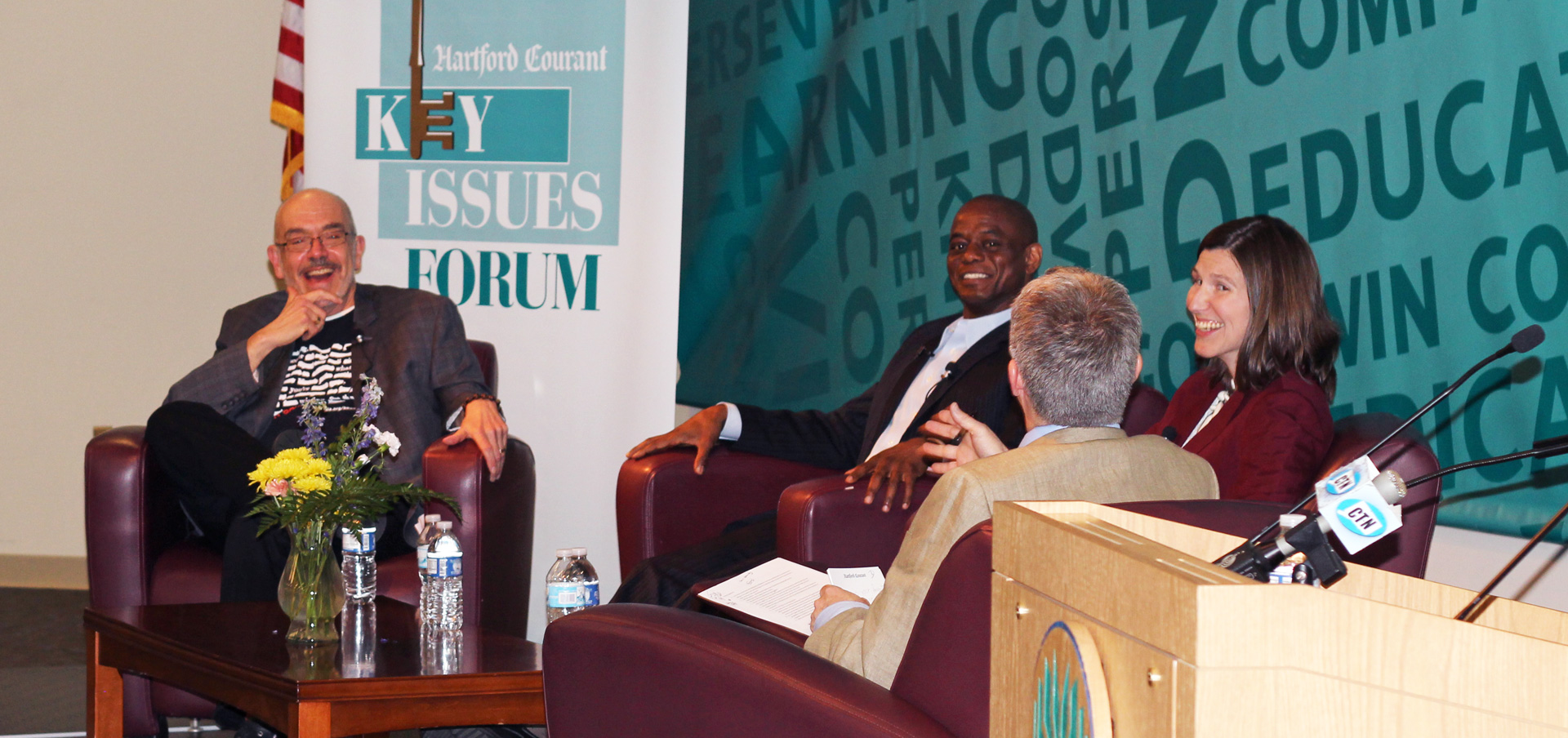On May 12, Goodwin College hosted the Hartford Courant’s Key Issues Forum, CONNECTICUT: Why We Live Here. Following a reception in Goodwin’s Community Room, the audience moved to the auditorium to hear a panel discussion featuring Wally Lamb, author of five New York Times bestselling novels; Rohan Freeman, president and CEO of Freeman Companies, a Hartford engineering firm; and Alissa DeJonge, vice president of research at the Connecticut Economic Research Center. All three panelists are Connecticut residents. Courant editor Andrew Julien moderated the discussion, which included a Q&A session.
The forum posed the question “Why do people settle in Connecticut — and stay?” The topics ranged from the state’s many assets — considerable amenities, natural beauty, access to the arts, and superior schools — to its challenges — obstacles to business, inequities in education from town to town, and the high cost of living. When the panelists were asked how they would introduce someone to Connecticut if they only had 24 hours, the replies were included showing them the beauty of the shoreline, visiting museums and cultural centers, and exploring some of the small towns tucked away throughout the state.
Lamb offered an example of how Connecticut sometimes misses the mark in capitalizing on business opportunities. His book I Know This Much Is True, which takes place in Connecticut, is slated to be filmed for a television adaptation with Mark Ruffalo. In researching financial encouragements from the state that might be applicable to the project, Lamb discovered that past advantages for film companies had been allowed to lapse; the project is now likely to be moved to another state.
Still, the panelists’ comments on life in Connecticut were positive overall, and they agreed that residents have a heritage and character all their own. When Julien applied the term “cranky” to Nutmeggers, Lamb countered with “feisty” — and perhaps “skeptical.” DeJonge offered that there is a duality among Connecticut’s citizens: while there is certainly a tendency towards “steady habits” in their DNA, there is at the same time a passion to strive for more and to explore new paths — a spirit, she said, that helped shape the rest of the country.
Goodwin is scheduled to host several upcoming Key Issues Forums later this year.
Read the Hartford Courant article and watch a brief video clip.
Goodwin University is a nonprofit institution of higher education and is accredited by the New England Commission of Higher Education (NECHE), formerly known as the New England Association of Schools and Colleges (NEASC). Goodwin University was founded in 1999, with the goal of serving a diverse student population with career-focused degree programs that lead to strong employment outcomes.

